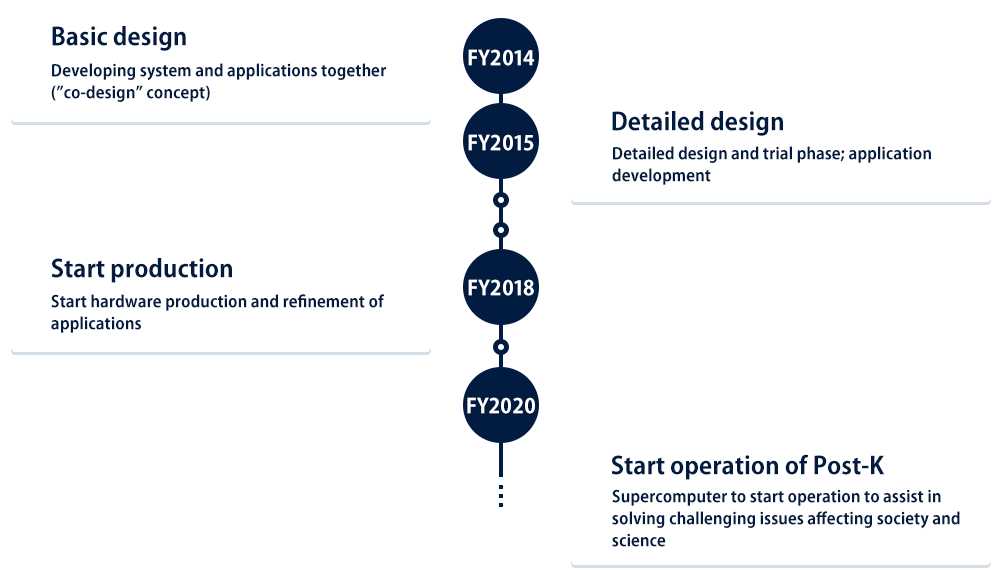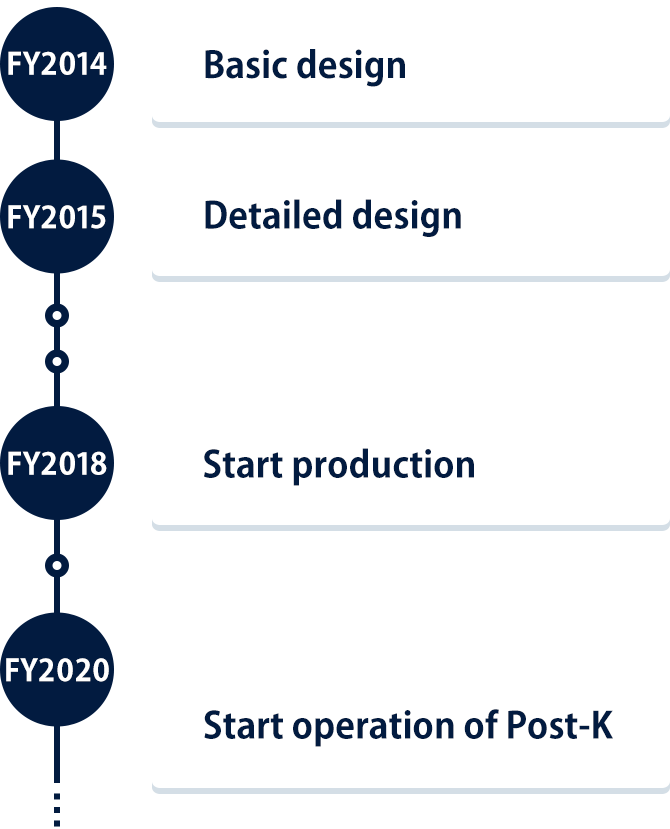Introduction
Our state-of-the-art supercomputer is scheduled to be launched in Japan around 2020. The FLAGSHIP 2020 project will incorporate the world’s best computer simulation technology to be used for advanced scientific research as well as for solving challenging issues affecting society.
FLAGSHIP 2020 Project

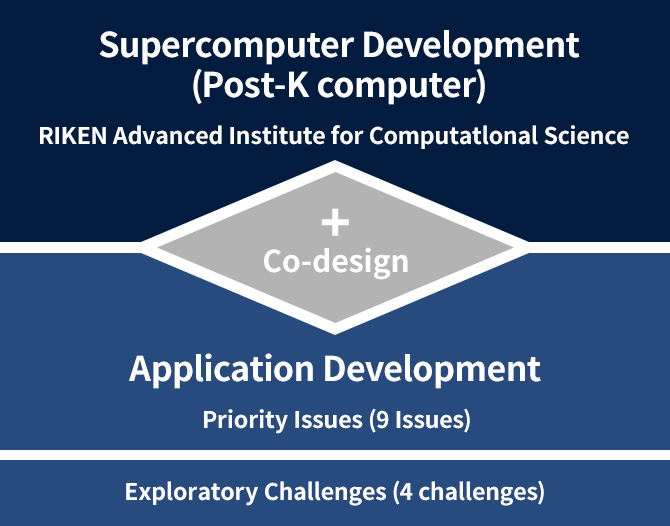
The project is backed by Japan’s Ministry of Education, Culture, Sports, Science and Technology.
“Co-design” concept
The new supercomputer is being developed as a tool to solve challenging problems in many disciplines. To create a system that is both state-of-the-art and easy to use, developers and users have collaborated by designing hardware and applications at the same time (“co-design”).
Focus areas
The K computer has already been instrumental in expanding certain fields of research. Use of the Post-K supercomputer will result in further expansion and pioneering of new areas. Nine priority issues have been selected for the new supercomputer. We will serve a leadership role in these areas by applying a more detailed simulation technology on a larger scale than is currently possible to help solve global issues. Japanese research institutes and universities in charge of the priority issues started their work in 2015 and are actively involved in creating a bright new future.
Health and longevity
-


Innovative drug discovery infrastructure through functional control of biomolecular systems
Priority Issues
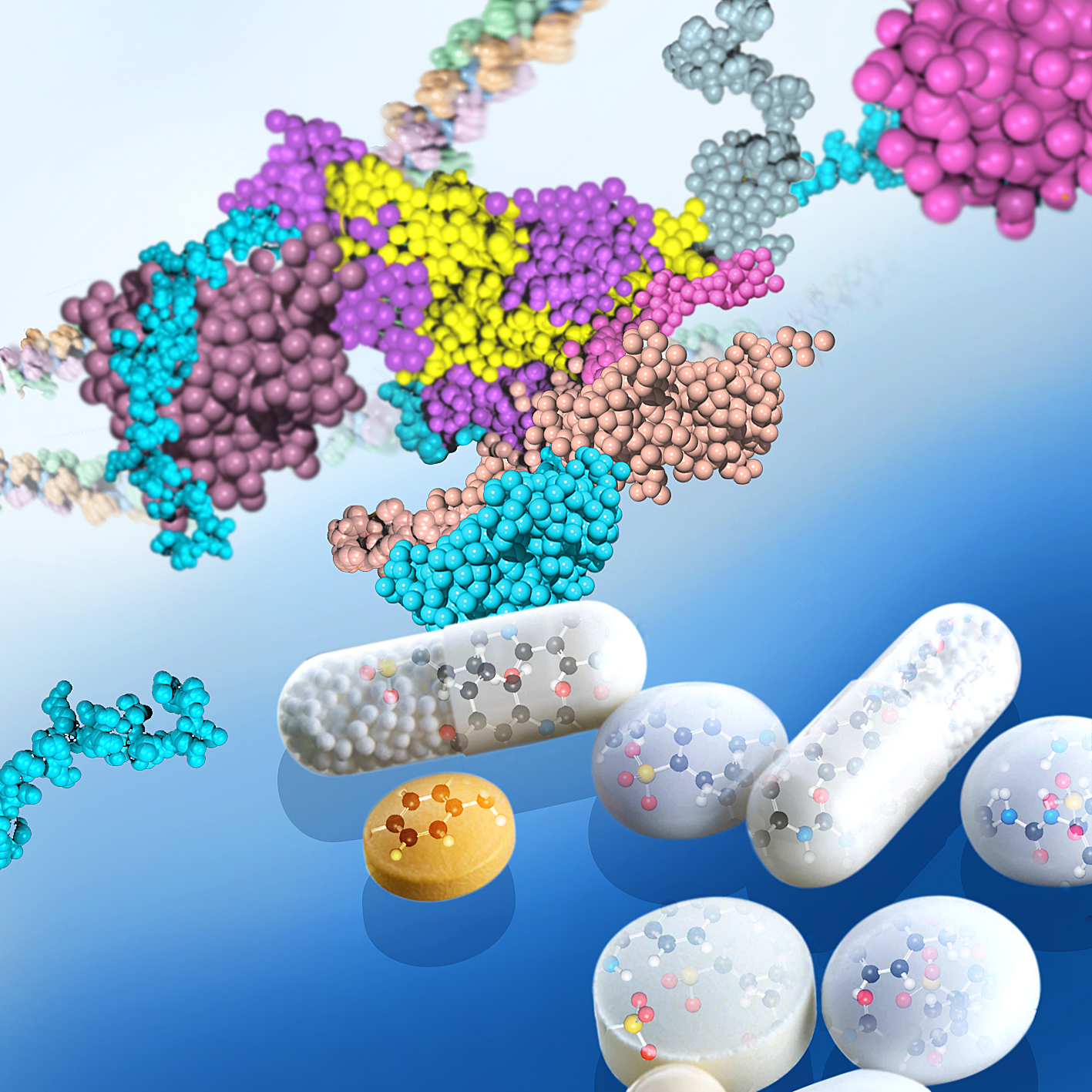
Health and longevity

 Innovative drug discovery infrastructure through functional control of biomolecular systems
Innovative drug discovery infrastructure through functional control of biomolecular systemsRIKEN Quantitative Biology Center, and 6 other institutions
Development of ultra-high speed molecular simulations is planned to achieve not only functional inhibition but also functional control of many biomolecules, including the factors that cause side-effects of drugs. This will lead to the safe, economical discovery of highly effective drugs.
Close
-


Integrated computational life science to support personalized and preventive medicine
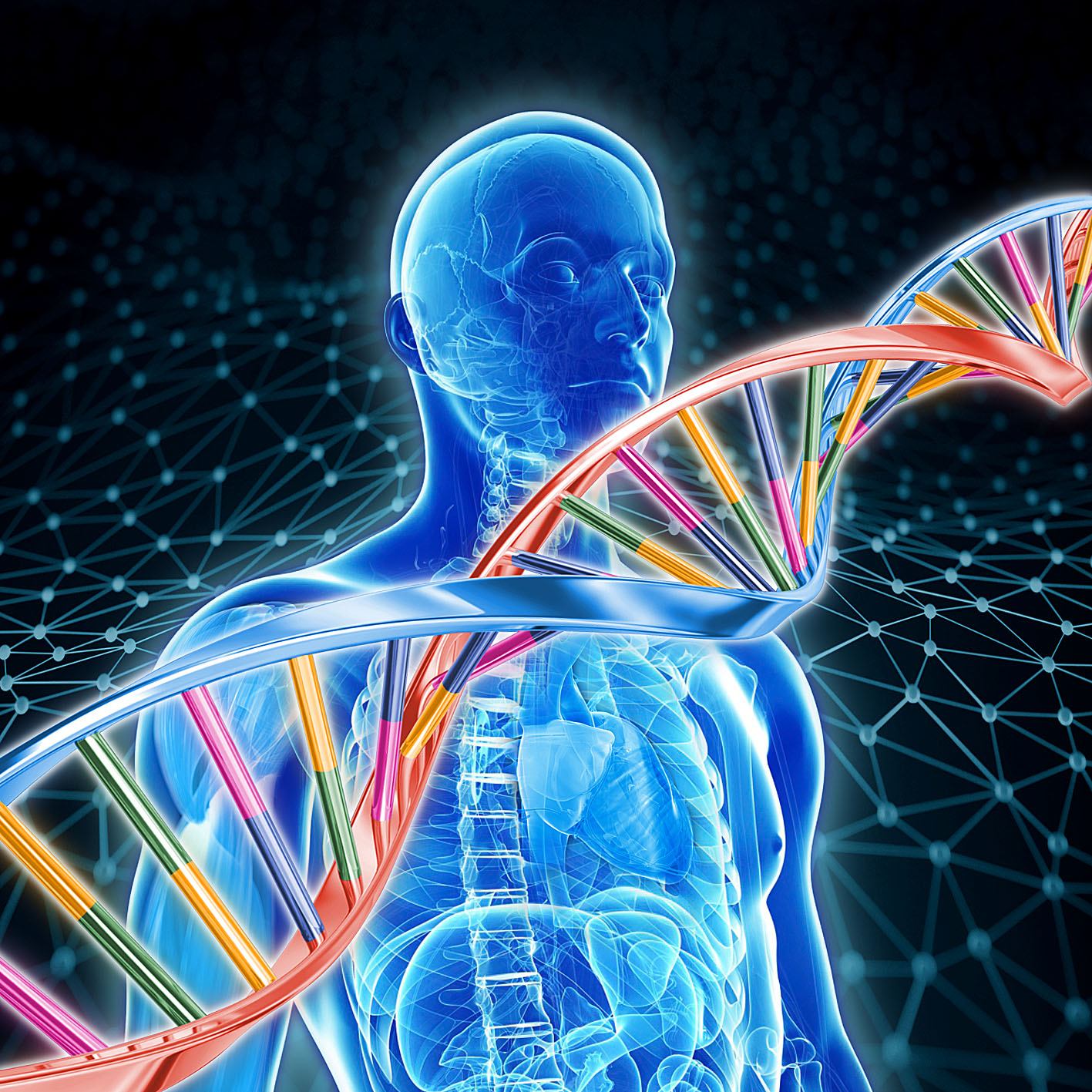
Health and longevity

 Integrated computational life science to support personalized and preventive medicine
Integrated computational life science to support personalized and preventive medicineInstitute of Medical Science, the University of Tokyo, and 6 other institutions
Our goal is to establish the integrated computational life science that constitutes the basis for personalized/preventive medicine for various diseases of cancer, blood vessel, heart and nervous system. This requires a methodology for comprehensive understanding of pathological states and exploration of their effective treatments through a view from genome to the whole body, both environment- and organism-spatiotemporally. We consider that this methodology can be realized by "information technology", "application of physics principles", and "utilization of big data" enhanced with the Post-K scale computation.
Close
Disaster prevention / Environment
-


Development of integrated simulation systems for hazards and disasters induced by earthquakes and tsunamis
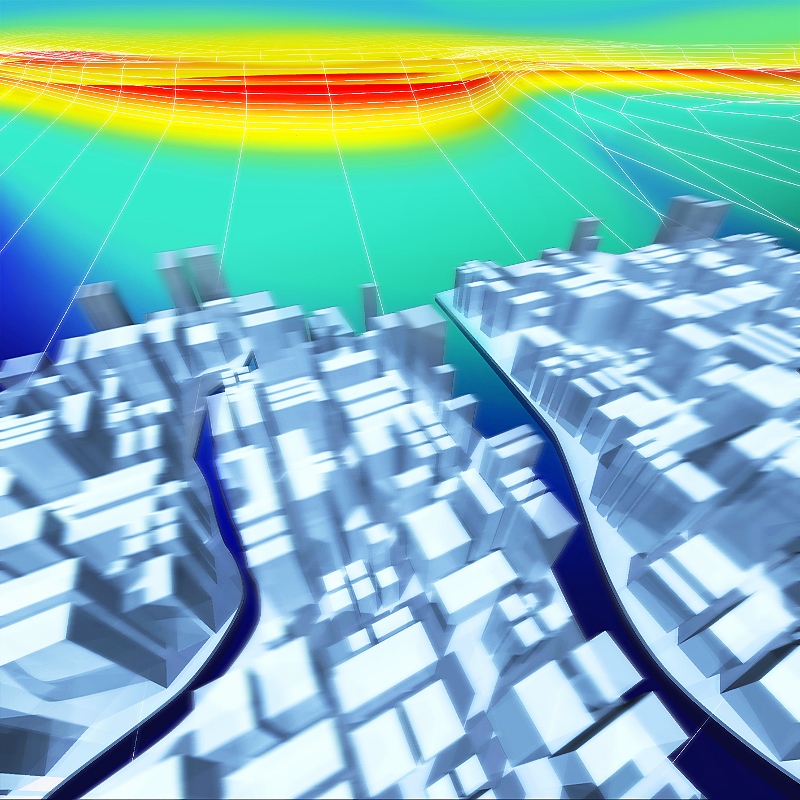
Disaster prevention / Environment

 Development of integrated simulation systems for hazards and disasters induced by earthquakes and tsunamis
Development of integrated simulation systems for hazards and disasters induced by earthquakes and tsunamisEarthquake Research Institute, the University of Tokyo, and 4 other institutions
An integrated system will be developed to simulate hazards and disasters induced by earthquakes and tsunamis. The system implements a package of numerical analysis methods of earthquake wave propagation, structural seismic responses, and social actions for disasters. All methods are improved for the use of Post-K computer. Certain components of the system are to be used by the Cabinet Office.
Close
-


Advancement of meteorological and global environmental predictions utilizing observational "Big Data"
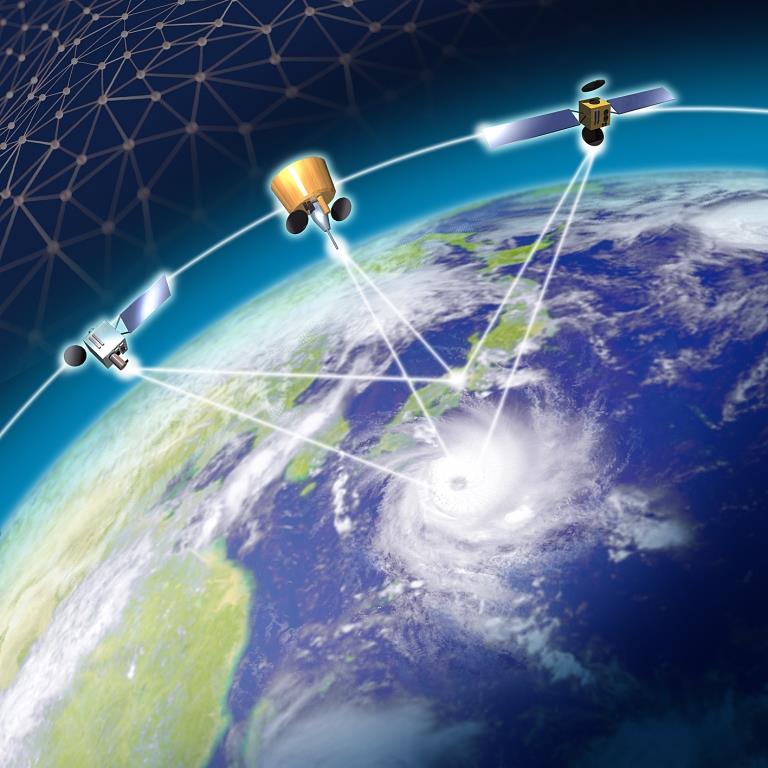
Disaster prevention /Environment

 Advancement of meteorological and global environmental predictions utilizing observational "Big Data"
Advancement of meteorological and global environmental predictions utilizing observational "Big Data"Center for Earth Information Science and Technology of Japan Agency for Marine-Earth Science and Technology (CEIST of JAMSTEC) and other 3 institutions
Infrastructure for a system that employs model calculations incorporating observational "Big Data" will be developed to accurately predict localized torrential rain, tornados, typhoons, and the like. The system will also monitor and project the impact of environmental changes due to human activity in order to help formulate environmental, disaster prevention and public health policies.
Close
Energy issues
-


Development of new fundamental technologies for highly-efficient energy creation, conversion, storage and use
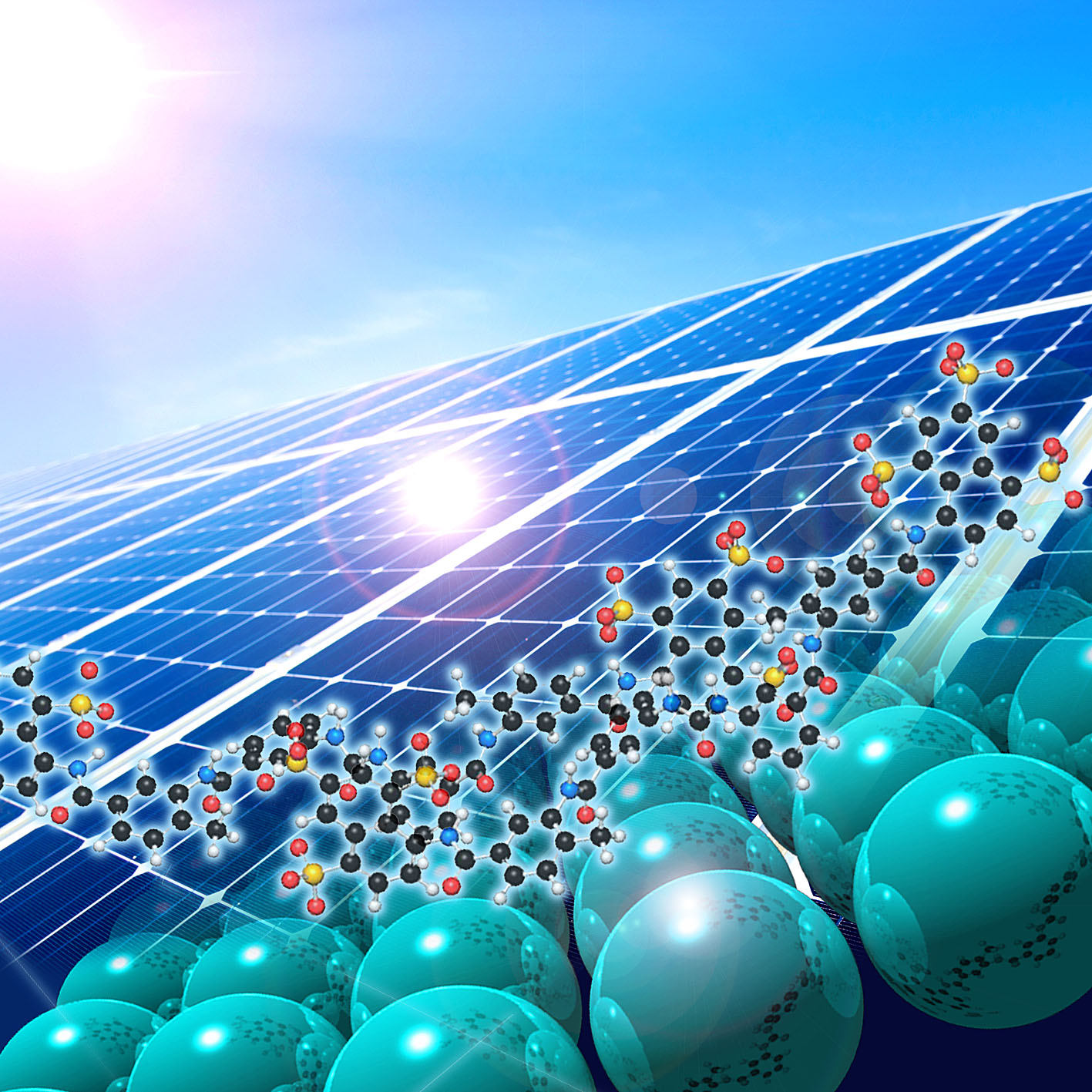
Energy issues

 Development of new fundamental technologies for highly-efficient energy creation, conversion, storage and use
Development of new fundamental technologies for highly-efficient energy creation, conversion, storage and useInstitute for Molecular Science, National Institute of Natural Sciences, and 8 other institutions
Full-system simulations at the molecular level will be made for complicated real-world complex systems to explain the entire process of highly-efficient energy creation, conversion, storage and use in coordination with experimentation. The simulations will be used to develop new fundamental technologies to resolve energy-related problems.
Close
-


Accelerated development of innovative clean energy systems

Energy issues

 Accelerated development of innovative clean energy systems
Accelerated development of innovative clean energy systemsSchool of Engineering, the University of Tokyo, and 11 other institutions
Complex physical phenomena that form the core of energy systems will be subjected to first-principles analysis to predict their occurrence and explain their comprehensive behavior. This will accelerate the practical application of innovative and clean energy systems that have ultra-high efficiency and low environmental impact.
Close
Industrial competitiveness enhancement
-


Creation of new functional devices and high-performance materials to support next-generation industries

Industrial competitiveness enhancement

 Creation of new functional devices and high-performance materials to support next-generation industries (CDMSI)
Creation of new functional devices and high-performance materials to support next-generation industries (CDMSI)The Institute of Solid State Physics, the University of Tokyo, and 7 other institutions
In combination with experiments and big data analysis, massively parallel computing leads to next-generation industries for functional devices and materials, such as semiconductor, permanent magnet, superconductor, and structural material.
Close
-


Development of innovative design and production processes that lead the way for the manufacturing industry in the near future
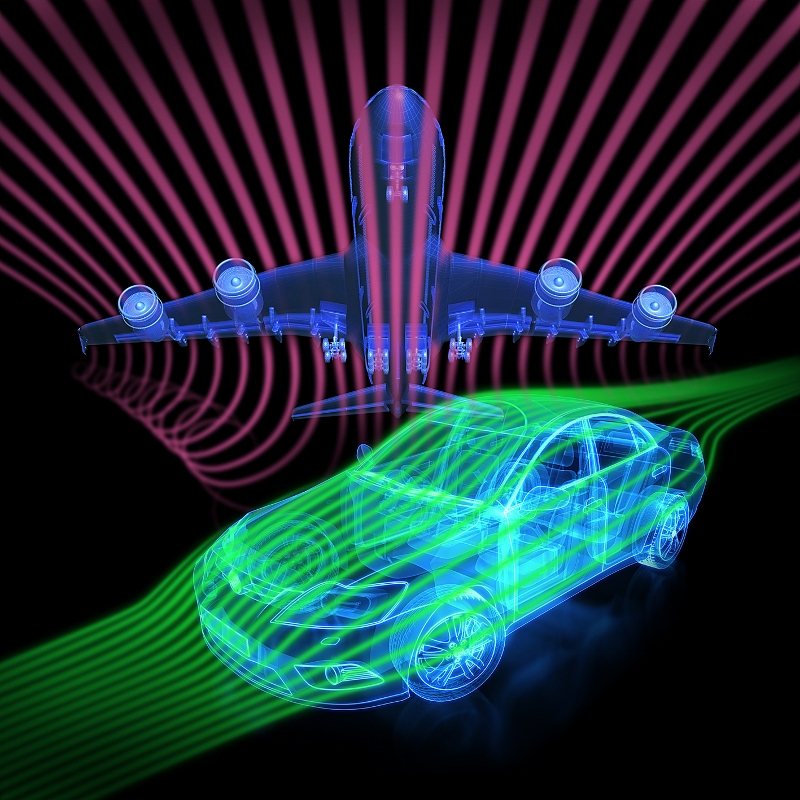
Industrial competitiveness enhancement

 Development of innovative design and production processes that lead the way for the manufacturing industry in the near future
Development of innovative design and production processes that lead the way for the manufacturing industry in the near futureInstitute of Industrial Science, the University of Tokyo, and 7 other institutions
Research and development for innovative design techniques will be done so that the product concept is quantitatively assessed at the initial stage in an optimal manner. By implementing innovative manufacturing processes that reduce costs and by performing ultra-high speed integration simulation, both of which form the core of the research and development efforts, high value-added product development will be achieved.
Close
Basic science
-


Elucidation of the fundamental laws and evolution of the universe
Priority Issues
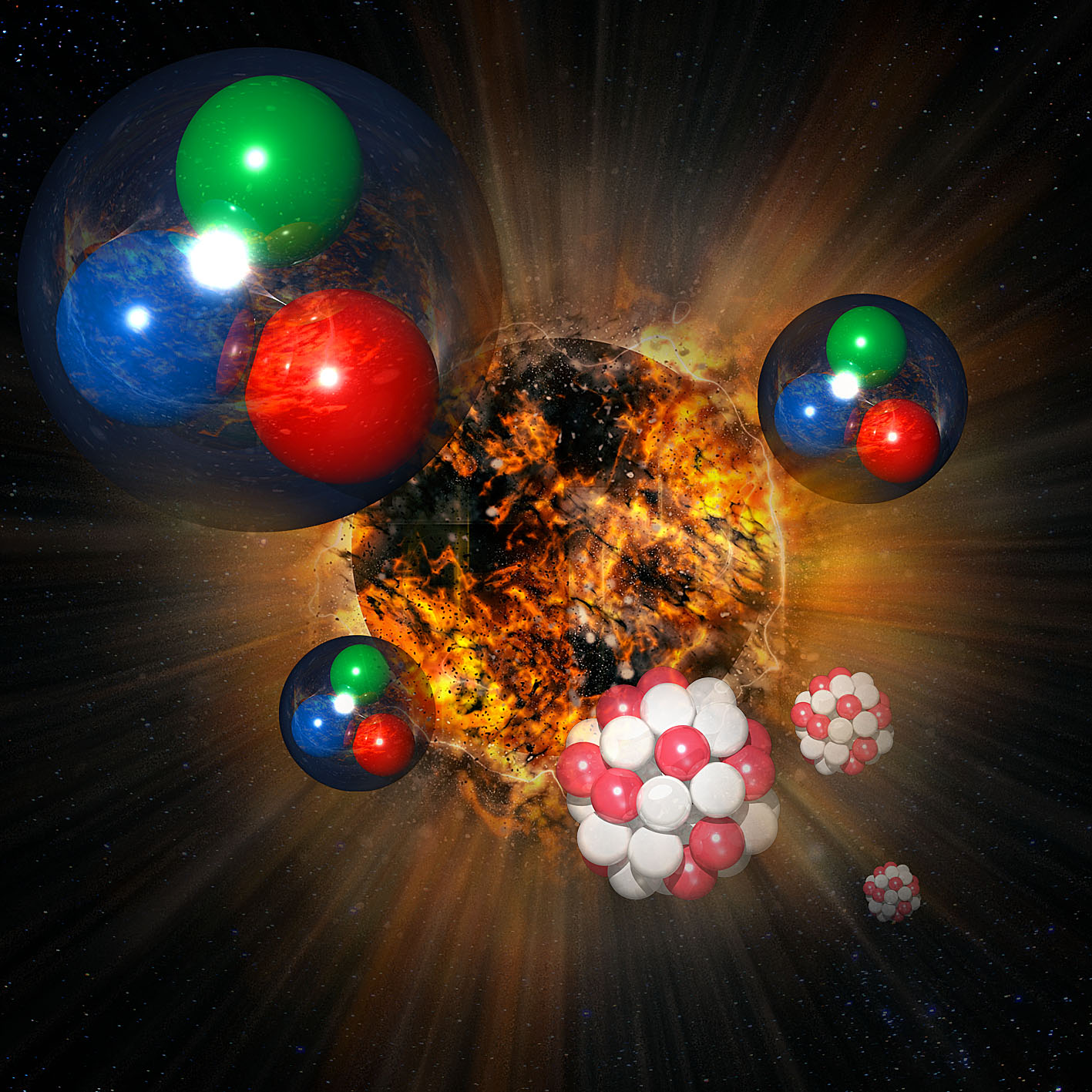
Basic science

 Elucidation of the fundamental laws and evolution of the universe
Elucidation of the fundamental laws and evolution of the universe
Center for Computational Science, University of Tsukuba, and 10 other institutions
Our aim is to conduct precise large-scale calculations using a supercomputer in order to investigate phenomena on scales ranging from that of elementary particles to the universe itself. We will combine the results obtained with those of large-scale experiments and observational data, in an effort to elucidate the history of the creation of matter.
Close
Exploratory Challenge
-

Frontiers of Basic Science: Challenging the Limits
-

Construction of Models for Interaction Among Multiple Socioeconomic Phenomena
-

Elucidation of the Birth of Exoplanets [Second Earth] and the Environmental Variations of Planets in the Solar System
-

Elucidation of How Neural Networks Realize Thinking and Its Application to Artificial Intelligence
Developing the Post-K supercomputer
A supercomputer breaking new ground.
Simulation technology to change the world.
Message by Project Leader Ishikawa
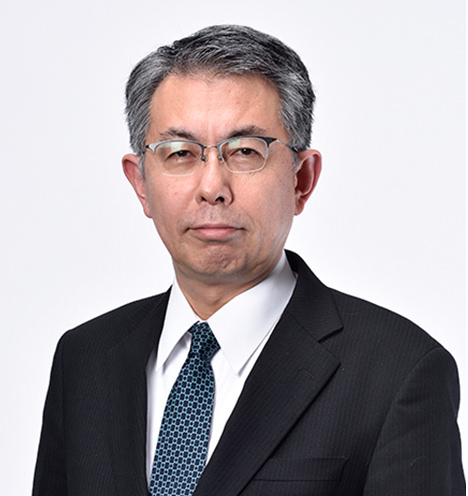
Dr. Yutaka Ishikawa, Project Leader
Development of Post-K supercomputer
The Post-K computer is being developed to help solve top-priority issues expected in the 2020s. With the completion of the Post-K computer, we expect that problems taking a year to solve on the current system will only take a few days on the new one. As a result, we will also be able to address a broader range of problems and make use of the new supercomputer in novel, innovative ways. The new system will become an essential tool for solving problems in the areas of bioscience, disaster prevention, environmental issues, energy, and manufacturing.
We face a number of technical challenges in creating the new system. In its development, we aim for a system that is highly productive and reliable, and which maintains a balance between performance and power consumption. To achieve this, we must develop both hardware and software that enable high application performance with low power consumption. We also need to build support software that makes it easy to create applications that take full advantage the Post-K computer’s performance. The hardware we develop will use leading-edge advanced micro-fabrication processing technology and ensure that the Post-K computer maintains a high level of reliability and fault tolerance.
To start general use around 2020, we will be working to ensure that the system we develop will live up to expectations, and look forward to your continuing support and cooperation.
Project team of the Post-K supercomputer
-
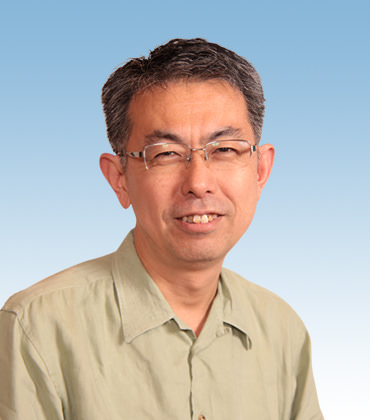
Yutaka Ishikawa
Team Leader System SoftwareDevelopment Team
Developing system software for management and control of hardware and providing an optimal execution environment. We are promoting international collaborations.
-
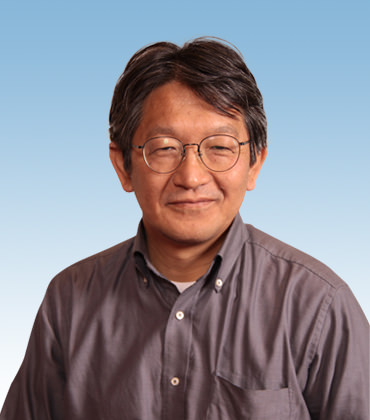
Mitsuhisa Sato
Team Leader ArchitectureDevelopment Team
Researching and developing a programming environment for supercomputers and designing the architecture of Post-K with our industrial partner.
-
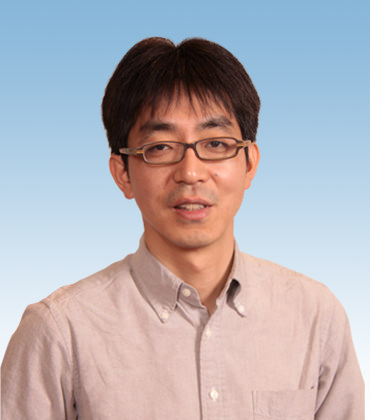
Hirofumi Tomita
Team Leader Application DevelopmentTeam
Addressing the co-design with the collaborating institutions by conducting the performance analysis and optimization of the target applications selected from nine priority issues.
-
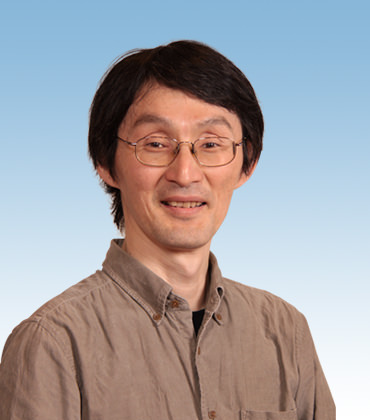
Junichiro Makino
Team Leader Co-Design Team
Aiming to maximize the performance of hardware and applications through our“co-design”concept. Conducting research on new algorithms.
Introductory movie
Timeline
